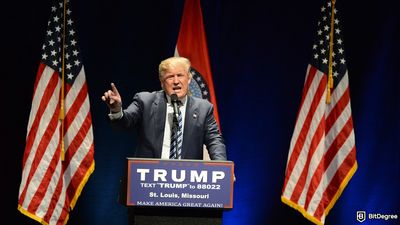The world's largest asset management company, BlackRock, targets imitator domains in a legal crackdown.
Asset management behemoth BlackRock is taking legal measures to counter a handful of internet domains that it claims are illicitly capitalizing on its name.
BlackRock recently initiated legal proceedings in the United States District Court for the Eastern District of Virginia. The complaint targets 44 websites that use key terms like "Blackrock," "Aladdin," "capital," "crypto," and "investments," accusing them of being registered to deliberately confuse consumers and divert online traffic.

Did you know?
Want to get smarter & wealthier with crypto?
Subscribe - We publish new crypto explainer videos every week!
What is Ethereum 2.0? Upgrades Easily Explained With Animations


These suspect domains allegedly employ techniques such as pay-per-click advertisements, malware distribution, and email phishing.
Representatives from Wiley Rein LLP, the law firm supporting BlackRock, highlighted existing research indicating that "typosquatting," a form of cybersquatting involving domains that mimic legitimate sites through typographical errors, affects over 95% of the internet's 500 most popular sites.
The legal filing states that these domains violate the Anti-Cybersquatting Consumer Protection Act as they are designed to be confusingly similar to BlackRock's established domains.
Interestingly, some flagged websites are crypto-related, like blackrock-crypto.net, which didn't load when tested, and crypto-blackrock.com, which seemed to offer web design services.
To identify those behind these domains, BlackRock has used the publicly accessible Whois database. The asset manager aims to not only gain control over these domains but also to secure damages and prevent further infringement of its well-known trademarks, including BLACKROCK, ALADDIN, and BLK.
BlackRock's move comes amid growing concerns over using copycat domains in scam promotions, often aided by advertising platforms like Google and Facebook.
It is worth noting that in the summer, BlackRock submitted an application for a Bitcoin spot exchange-traded fund (ETF).
BlackRock's legal action underlines organizations' growing challenges in protecting their brands online, particularly in the swiftly evolving crypto space. By pushing for the transfer of these misleading domains and seeking damages, the firm is taking steps to assert its intellectual property rights and safeguard consumers.






















